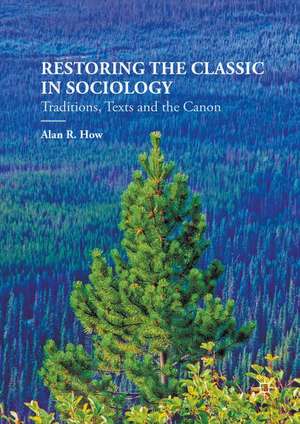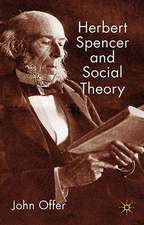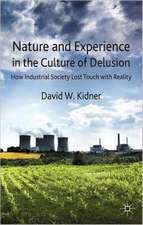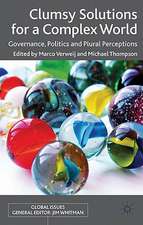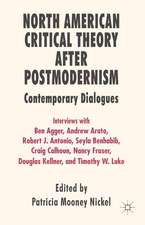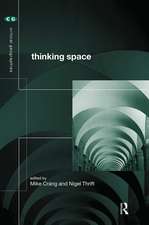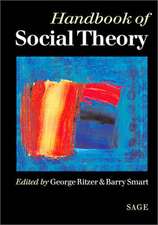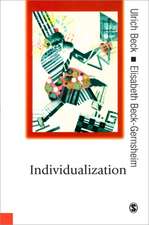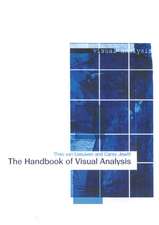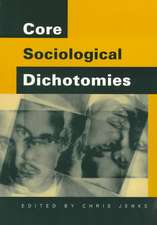Restoring the Classic in Sociology: Traditions, Texts and the Canon
Autor Alan R. Howen Limba Engleză Hardback – 11 iul 2016
Preț: 573.97 lei
Preț vechi: 675.26 lei
-15% Nou
Puncte Express: 861
Preț estimativ în valută:
109.82€ • 114.68$ • 90.69£
109.82€ • 114.68$ • 90.69£
Carte tipărită la comandă
Livrare economică 15-29 aprilie
Preluare comenzi: 021 569.72.76
Specificații
ISBN-13: 9780230013261
ISBN-10: 0230013260
Pagini: 246
Ilustrații: VI, 260 p.
Dimensiuni: 148 x 210 x 28 mm
Greutate: 0.45 kg
Ediția:1st ed. 2016
Editura: Palgrave Macmillan UK
Colecția Palgrave Macmillan
Locul publicării:London, United Kingdom
ISBN-10: 0230013260
Pagini: 246
Ilustrații: VI, 260 p.
Dimensiuni: 148 x 210 x 28 mm
Greutate: 0.45 kg
Ediția:1st ed. 2016
Editura: Palgrave Macmillan UK
Colecția Palgrave Macmillan
Locul publicării:London, United Kingdom
Cuprins
Introduction.- Part I.- Chapter 1. The Issue: The Sense of an Ending.- Part II. The Wider Context: The Past, the Classic, and the Identity of Sociology.- Chapter 2. In Pursuit of Identity: Fragmentation, Conflict and Crisis.- Chapter 3. On the Antipathy of Sociology to the Past.- Chapter 4. Contested Identity: Sociology in Postmodern Times.- Chapter 5. Rethinking Tradition.- Part III. Hermeneutics, Tradition, Classic and Canon.- Chapter 6. The Hermeneutic Approach.- Chapter 7. Hermeneutics, Tradition and the Classic Text.- Chapter 8. Canons and Their Discontents.
Recenzii
“Presenting an argument that brings many voices into the conversation while relying in particular on Hans-Georg Gadamer, the book is engaging and full of insights … . Summing Up: Recommended. Graduate students/faculty.” (P. Kivisto, Choice, Vol. 54 (6), February, 2017)
Notă biografică
Alan R. How is Senior Lecturer at the University of Worcester, UK.
Textul de pe ultima copertă
‘This book is a must-read for anyone interested in exploring the role of ‘the classic’ in sociology. In terms of both breadth and depth, Alan How has done a brilliant job in providing an inclusive, undogmatic, and inspiring account of the multiple ways in which key intellectual traditions and canons have shaped, and continue to shape, paradigmatic developments in contemporary sociological analysis.’
– Simon Susen, City University, UK
‘This lively and engaging book moves from an exploration of the question of sociology's current response to its “classics” and the idea of a sociological “canon” to a broader defence of a hermeneutic approach to tradition in social thought and in modern societies.’
– William Outhwaite, Newcastle University, UK
Alan R. How is Senior Lecturer at the University of Worcester, UK.
